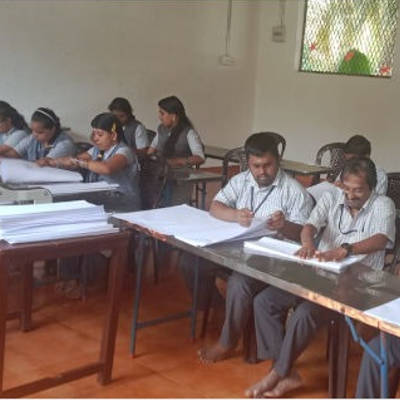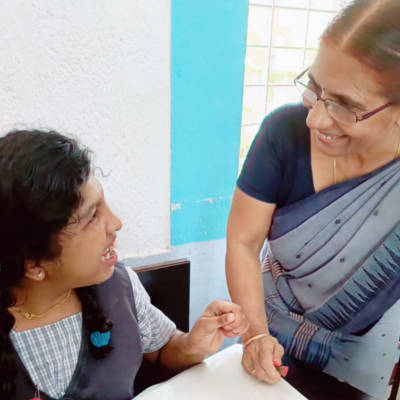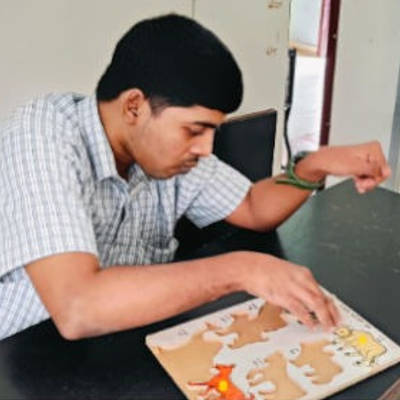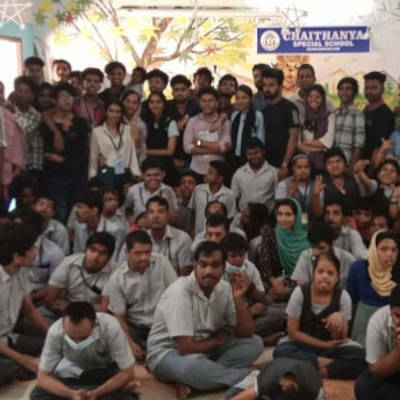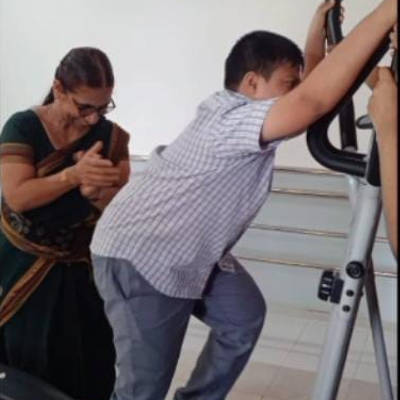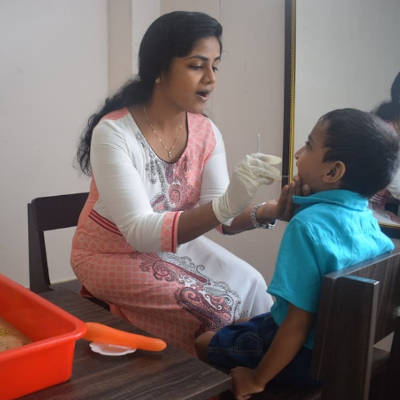Research Facility
Internships
Chaithanya special School provides Internship experience in Mental Health, as per the goals identified from the internship. Internship experience at Chaithanya will give you a well-rounded opportunity to learn and practice in your academic areas as well as ready you with hands-on experience of the demands of the workplace in an environment of mentoring and nurturing. Undergraduates and Postgraduate Students from different streams of mental health, like Social Work, Psychology and Psychiatric Nursing can contact us for Internships of one or two months beginning from the first working day of the month.
The program is intended for Undergraduates and Postgraduate students of the specialities mentioned above. Interested students should apply through their department heads/institution head via email (preferred) or post. Applications must be forwarded by the concerned institution to be considered. Applications should reach the Chaithanya office a minimum of 30 days before the requested date for commencement of the internship. The internship fee is Rs. 3000/- per individual for one month. The amount should be paid as a demand draft drawn in favor of the Director, Chaithanya Special School, Kunnamkulam at the time of allocation of the placement.
Projects
Projects are one of the many ways in which Chaithanya Special School is helping to build the next generation of mental health service providers. Projects are available for 2 months to one semester or the entire school year. Our Projects are unpaid. Project Interns will be eligible for credit. Project will be undertaken with the help of project guides in the campus and the college guide. Weekly supervision is provided to interns. Conducting research within the designated community, based on selected roles, which encompass:
- Awareness Advocates: Spreading awareness about mental health and mental well-being within communities
- Community Surveys: Assisting in understanding the community's needs by conducting surveys and interviews
- Support Groups: Participating in and facilitating support groups within communities
- Therapy Workshops and Sessions: Involvement in therapy workshops and sessions with trained professionals (limited to master's students and above)
- Engaging in similar sessions organized online for volunteers
- Contributing to online tasks, which involve assisting the team in creating content, designing schedules for awareness workshops and support sessions, and designing surveys
The program is intended for Undergraduates and Postgraduate students of the specialities mentioned above. Interested students should apply through their department heads/institution head via email (preferred) or post. Applications must be forwarded by the concerned institution to be considered. Applications should reach the Chaithanya office a minimum of 30 days before the requested date for commencement of the internship. The project internship fee is Rs. 5000/- per individual for 2 months. The amount should be paid as a demand draft drawn in favor of the Director, Chaithanya Special School, Kunnamkulam at the time of allocation of the placement.
Other activities
Awareness Programs
Parental Awareness Program (PAP): Parents of mentally retarded children often do not have the knowledge of how to deal with their child care. It is at this stage that Chaithanya offers awareness programs on essential health care to respond to these needs.
Community Awareness Program (CAP): There is a confusion even amongst the legal community that mentally retarded people are mentally ill. Mentally retarded persons are suffering from mental disabilities due to developmental disorders. Mental retardation of permanent nature is not curable
School Awareness Program (SAP): This is to make the normal students of the school that Mentally Retarded persons with disabilities are also equally entitled to the rights provided by the laws and the protection of laws like any other persons.
Awareness programmes for the General Public (APGP) – Awareness programmes are conducted for the general public to educate the public that Mentally Retarded and other disabled persons also have the rights on par with the other normal persons.
Drug Abuse Awareness Programs (DAAP): Creating awareness and educate people about the ill-effects of substance abuse on the individual, the family, workplace and the society at large
Counseling
Guidance and Counseling is mainly focused on the parents because they are the ones who have to take care of their mentally retarded children. They have to follow an approach of guidance and counseling which will not only help them but also will lead the way for Mentally Retarded children. The topics covered are challenges faced by the mentally retarded children and their parents, meaning of guidance and counseling, significance of guidance and counseling for MR children and their parents, suggestions for quality education and counselors’ roles for mentally retarded children and the services required in an ideal community for MR children

